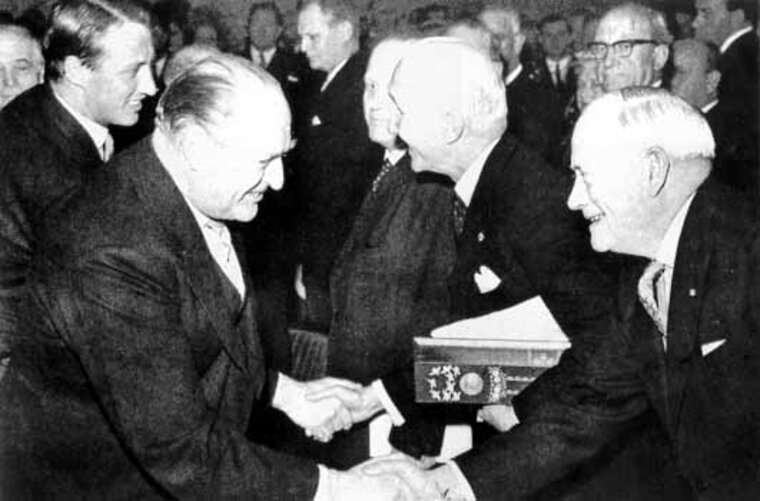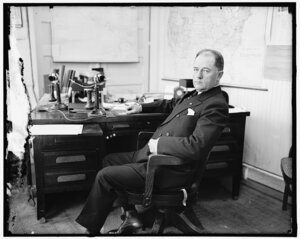League of Red Cross Societies
Speed read
The League of Red Cross Societies was awarded the Nobel Peace Prize, jointly with the International Committee of the Red Cross, for promoting the principles of the Geneva Convention and cooperation with the UN.

Full name: League of Red Cross Societies
Native name: Ligue des Sociétés de la Croix-Rouge
Founded: 1919, Paris, France
Date awarded: 10 October 1963
International liaison for the national organisations
In 1919, one year after the end of WWI, the League of Red Cross Societies was founded. The initiative came from Henry P. Davison, president of the American Red Cross. Experience from cooperation during WWI made it clear that the national Red Cross organisations would benefit from cooperating closely in peacetime as well. The Red Cross societies in France, Great Britain, Italy, Japan and the USA were the first members of the League, which today is called the International Federation of Red Cross and Red Crescent Societies. The League’s first task was to conduct relief efforts in countries where the population had suffered most greatly during the war. Subsequently, the organisation has conducted extensive aid operations in peacetime, relieving hunger and hardship in the wake of natural disasters.
"The cooperation between the Red Cross societies of ninety different races, creeds, and colour is of very real importance for the international understanding and peace."
Carl Joachim Hambro, Member of the Nobel Committee, Presentation Speech, 10 December 1963.

"The Red Cross today has a much broader framework than at its founding. Then, its dictum was to help the wounded on the battlefield. Now, its help is directed at all who are suffering."
Anders Daae, in Norwegian newspaper Aftenposten, 13 December 1963.
Man behind the League of Red Cross Societies
Born in Pennsylvania, USA, Henry Pomeroy Davison (1867-1922) made a successful career in banking, becoming one of the most influential financiers of his day. When the USA entered WWI in 1917, Davison was chosen to be director of the American Red Cross. He led a fundraising campaign that amassed four million dollars, and the money was used to send Red Cross personnel to the front lines. When the war ended, Davison introduced his idea for a permanent organisation that would alleviate suffering when natural disaster struck. A year later, in 1919, the League of Red Cross Societies was founded.

"The league represents millions of voluntary workers, to whom the movement owes an extreme debt of gratitude."
John A. MacAulay, Nobel Prize lecture, 11 December 1963.
A changing world
The Red Cross in a Changing World was the title of John A. MacAulay’s Nobel Prize lecture in 1963. He spoke on behalf of the League of Red Cross Societies, giving examples of Red Cross activities during peacetime in recent years. He mentioned aid to victims of epidemics throughout the world, support to tens of thousands of refugees from Algeria, Angola and Hungary, and efforts to help flood victims in Europe and earthquake victims in Asia. MacAulay expressed the hope that the countries of the world would, in the future, devote greater resources to humanitarian activities, and fewer to conflict and war.
Learn more
Read the history of the League of Red Cross Societies.
Disclaimer: Every effort has been made by the publisher to credit organisations and individuals with regard to the supply of photographs. Please notify the publishers regarding corrections.
Nobel Prizes and laureates
Six prizes were awarded for achievements that have conferred the greatest benefit to humankind. The 14 laureates' work and discoveries range from quantum tunnelling to promoting democratic rights.
See them all presented here.
